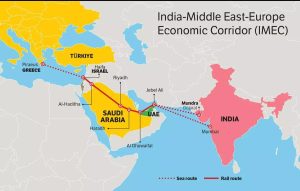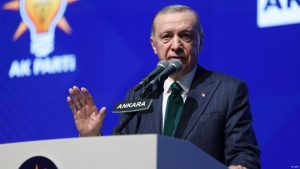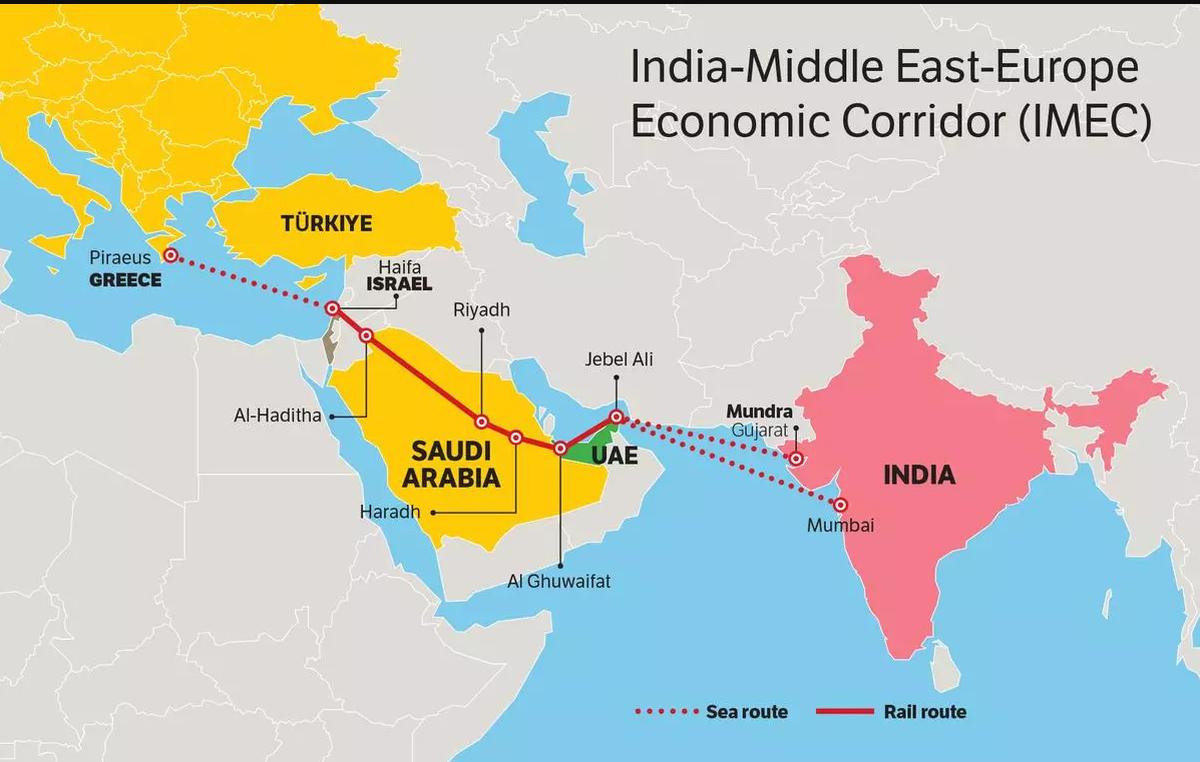The US and EU-backed India-Middle East-Europe Corridor was billed as a potential rival to China’s Belt & Road Initiative. But it’s future looks bleak due to the war in the Middle East.

At the G20 summit held in New Delhi in September 2023, India announced an ambitious venture called the India-Middle East-Europe Corridor (IMEC).
Backed by the US, EU and Middle Eastern leaders such as Saudi crown prince Mohammed bin Salman, IMEC is a proposed ship and rail corridor that would connect India to the Middle East and Europe. US President Joe Biden said the project would offer “endless opportunities.” European Commission president Ursula von der Leyen called it “the most direct connection to date between India, the Persian Gulf and Europe.” Indian Prime Minister Narendra Modi said IMEC would form the “basis of world trade for hundreds of years to come.” However, the Israel-Hamas war has halted progress on IMEC, as have attacks on vessels in the Red Sea by Houthi . The project’s future is now somewhat uncertain.
How has Israel’s war on Hamas impacted the project?
One of the selling points of IMEC is that it would help promote economic integration and partnership within the Middle East, connecting as it would the countries of the United Arab Emirates (UAE), Saudi Arabia, Jordan and Israel. However, such a vision depends on peace in the region and the Israel-Hamas war has massively upended the security situation. Added to that, fury in Saudi Arabia and the UAE over Israel’s bombardment of Gaza has undermined efforts to improve relations between Israel and some of its Arab neighbors.

The bombardment of Gaza by Israel, Image: Mahmoud Issa/REUTERS
Biden even suggested back in October that part of the reason why Hamas attacked Israel on October 7 was that they wanted to disrupt efforts made at “regional integration for Israel,” with IMEC being one obvious recent example he had given very public backing to. IMEC aims to connect goods, energy and data from India to Europe via the Middle East through rail and sea networks, pipelines and cables. One of the key parts is expected to be a rail network that would connect the UAE, Saudi Arabia, Jordan and Israel.
Saudi Arabia has already committed to investing $20 billion (€18.4 billion) in IMEC, much of it on the rail network. However, it seems that IMEC’s fate is now tied to how the Israel-Hamas war develops, given the level of cooperation the project would require between Israel and its Arab neighbors. Saudi Arabia said recently it is still interested in normalizing diplomatic relations with Israel once the war in Gaza ends, but said it would only do so if a deal leads to the establishment of a Palestinian state.
The security questions don’t end with the Israel-Hamas war. The wave of Houthi rebel attacks on shipping in the Red Sea recently has highlighted just how vulnerable trade can be to security concerns. The IMEC would not travel through the Red Sea but its maritime route from India would go through the Strait of Hormuz, a highly sensitive chokepoint vulnerable to Iranian influence.
Are there other challenges for IMEC?
There are plenty of other questions about the viability of IMEC. One relates to Turkey. Ankara was quick to voice its opposition to IMEC from the start. Turkey is not included in the IMEC project and the country’s president Recep Tayyip Erdogan said after the announcement at the G20 that “there can be no corridor without Turkey.”

Turkish President Erdogan is strongly opposed to the IMEC project, Image: DHA
The Turkish government is emphasizing its country’s traditional role as a bridge between eastern and western trade and is touting an alternative corridor, known as the Iraq Development Road. It says Iraq, Qatar and the UAE are involved in negotiations with it to establish a trade route from Turkey to the Persian Gulf. Turkish opposition highlighted what the country’s foreign minister Hakan Fidan referred to as “geostrategic concerns.” Some commentators have suggested that IMEC is as much political as economic, particularly given that it would appear to be designed to rival China’s Belt & Road Initiative. There are also doubts about construction and financing. The project requires extensive cross-border investment and cooperation. In particular, the project’s green credentials have been widely signaled but there has still been no feasibility study regarding the construction of green hydrogen pipelines.
The BRI and its much touted challenger, IMEC, have been both confronted with major wars. While the BRI is deprived of the direct land route linking China with Europe through Russia, Belarus, and Ukraine, IMEC is likely to become a collateral damage of the Israeli-Hamas war. Overall, though, the BRI appears more resilient against such external shocks. The scheme has been underway since 2013 and it has found alternative land routes through Central Asia, the Caucasus region, and Turkey. It is precisely these additional cost-effective trading routes that IMEC lacks.
Sources:
https://www.dw.com/en/india-middle-east-corridor-in-doubt-due-to-israel-hamas-war/a-68354312
https://thediplomat.com/2023/10/is-the-india-middle-east-europe-economic-corridor-dead-on-arrival/

